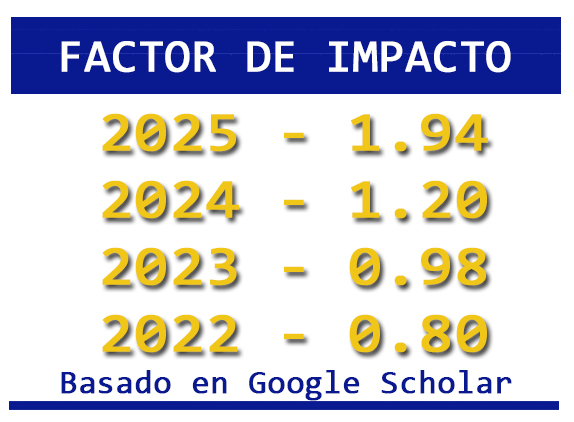DISFRUTO EL PODER DE SER FELIZ: EXPERIENCIA EN PERSONAS QUE VIVEN CON VIH
DOI:
https://doi.org/10.36790/epistemus.v10i21.32Keywords:
Programación Neurolingüística, Gaudibilidad, Personas que viven con VIH, EnfermeríaAbstract
Las personas que viven con virus de inmunodeficiencia humana (VIH) pueden presentar alteraciones biopsicosociales que generan infelicidad. La gaudibilidad (capacidad para ser feliz y disfrutar), puede favorecerse al crear nuevos patrones de conducta mental con la programación neurolingüística (PNL). El propósito fue: analizar la experiencia vivida en un taller de PNL para personas que viven con VIH, a la luz del referente teórico de; Rogers. Estudio cualitativo con diseño fenomenológico, participaron 12 personas de la Asociación CONVIHVE A.C. Michoacán, en un taller de PNL conformado por ocho sesiones. Tratamiento de datos por análisis de contenido, emergieron cinco dimensiones dejando ver el poder de cambio que tienen dichas personas para disfrutar la vida, al generar emociones positivas que se anclaron al inconsciente. Conclusiones. La PNL como intervención de enfermería favorece la gaudibilidad de las personas que
viven con VIH.
Downloads
References
Programa Conjunto de Naciones Unidas sobre el VIH/SIDA (ONUSIDA), “El SIDA en cifras 2015”. Día mundial del SIDA 2015. 20 Avenue Appia CH-1211 Ginebra 27 Suiza Accessed november 2015. [Online]. Available: http://www.unaids.org/sites/default/files/media_asset/AIDS_by_the_numbers_2015_es.pdf
Centro Nacional para la Prevención y Control del VIH/SIDA (CENSIDA), “Panorama de la respuesta nacional al VIH México 2015”. 1° de diciembre de 2015. Accessed december 2015. [Online]. Available: http://www.censida.salud.gob.mx/descargas/diamundial/Panorama_nacional_de_la_respues-ta_a_la_epidemia_de_VIH2015_1.pdf
Secretaria de Salud de Michoacán (SSM), “Informe anual 2015” Departamento de Enfermedades de Transmisión Sexual y SIDA 2015. Accessed november 2015. [Online]. Available: http://www.moreliaymas.com/incrementan-casos-de-vihsida-en-michoacan/
R. Cantú and J. Álvarez, Impacto psicosocial en personas que viven con VIH-sida en Monterrey, México. Psicología y Salud, Vol. 22, Núm. 2: 163-172, julio-diciembre de 2012. Accessed may 2015. [Online]. Available: http://www.uv.mx/psicysalud/psicysalud-22-2/22-2/Rodrigo%20Cant%FA%20Guzm%E1n_2.pdf
F. Padrós, Nivel de Gaudibilidad en pacientes esquizofrénicos: un estudio piloto. Salud Ment vol.34 no.6 México nov./dic. 2011. Accessed May 2013. [Online]. Available:http://www.scielo.org.mx/scielo.php?script=s-ci_arttext&pid=S0185-33252011000600007
A. Castro, Las rutas del acceso al bienestar. Relaciones entre bienestar hedónico y eudaimónico. Un estudio en población argentina. Revista Iberoamericana de Diagnóstico y Evaluación Psicológica. 26(2), 117-139. 2011. Accessed May 2015. [Online]. Available: http://alfama.sim.ucm.es/wwwisis2/wwwisis.exe/[in=psyke2.in]/?format=breve&boolean=%5BNR:11353848
F. Padrós, Disfruté y bienestar subjetivo. Un estudio psicométrico de la Gaudibilidad. Departamento de Psicología en Educación, Facultad en Psicología, Universidad de Barcelona 2012. Accessed may 2013. [Online]. Available: http://www.revistas.unc.edu.ar/index.php/revaluar/article/download/.../448
G. Anne, Fundamentos de Enfermería. 5ta ed. Barcelona: Editorial Diorki Servicios Integrales de edición, 2011. p. 98 Accessed April 2015. [Online]. Available: http://enfermeriaactodecuidaryamar.blogspot.mx/2011/11/martha-rogers-su-teoria-para-enfermeria.html
L. Ferrari, El poder de tu mente. No te imaginas lo que tu mente puede hacer por ti. 2014. Tus buenos libros.com Accessed April 2016. [Online]. Available: http://www.tusbuenoslibros.com/resumenes/el_poder_de_tu_mente.pdf.
F. Padrós and J. Fernández, Proposal to measure a modulator of the experience of enjoyment: The gaudiebility scale. Internacional J Psychology Psychological Therapy 2008;8(3):413–430. Accessed may 2013. [Online]. Available: http://www.ijpsy.com/volumen8/num3/214/a-proposal-to-measure-a-modulator-of-the-EN.pdf
F. Padrós, Gaudiebility Group Therapy in Depressed Patients: A Pilot Study. International Journal of Psychology and Psychological Therapy, 14, 1, 59-69, 2014 Printed in Spain. All rights reserved. 2014. Accessed february 2014. [Online]. Available: http://www.ijpsy.com/volumen14/num1/374/gaudiebility-group-therapy-in-depressed-EN.pdf
Q. Perea. Educación para la salud: (Reto de nuestro tiempo) Observación Participante. Ediciones Diaz De Santos, S.A. Doña Juana de Castilla, 22. 28027 Madrid España. ISBN: 84-7978-644-2. 2004.
Vázquez C. 2013. La Felicidad y la Percepción de la Salud. Facultad de Psicología de la Universidad Complutense de Madrid. Millward Brown España. Accessed December 2014. [Online]. Available: https://es.scribd.com/document/75236405/La-felicidad-y-la-percepcion-de-la-salud
Downloads
Published
How to Cite
Issue
Section
License

This work is licensed under a Creative Commons Attribution-NonCommercial-NoDerivatives 4.0 International License.
The magazine acquires the patrimonial rights of the articles only for diffusion without any purpose of profit, without diminishing the own rights of authorship.
The authors are the legitimate owners of the intellectual property rights of their respective articles, and in such quality, by sending their texts they express their desire to collaborate with the Epistemus Magazine, published biannually by the University of Sonora.
Therefore, freely, voluntarily and free of charge, once accepted the article for publication, they give their rights to the University of Sonora for the University of Sonora to edit, publish, distribute and make available through intranets, Internet or CD said work, without any limitation of form or time, as long as it is non-profit and with the express obligation to respect and mention the credit that corresponds to the authors in any use that is made of it.
It is understood that this authorization is not an assignment or transmission of any of your economic rights in favor of the said institution. The University of Sonora guarantees the right to reproduce the contribution by any means in which you are the author, subject to the credit being granted corresponding to the original publication of the contribution in Epistemus.
Unless otherwise indicated, all the contents of the electronic edition are distributed under a license for use and Creative Commons — Attribution-NonCommercial-ShareAlike 4.0 International — (CC BY-NC-SA 4.0) You can consult here the informative version and the legal text of the license. This circumstance must be expressly stated in this way when necessary.
The names and email addresses entered in this journal will be used exclusively for the purposes established in it and will not be provided to third parties or for their use for other purposes.















